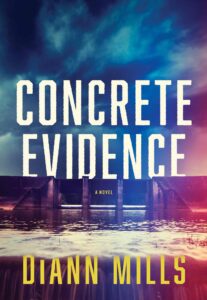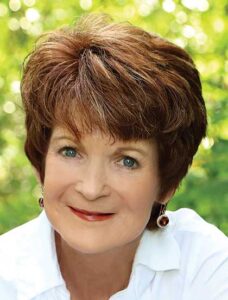by DiAnn Mills
 I didn’t think I had a blind spot until a well-meaning friend brought it to my attention. Not a pleasant conversation. Denial flew from my lips followed by heated demands of proof. No one wants the stigma of not recognizing the truth about themselves. My friend didn’t have a personal agenda. She saw something about me, a vulnerability that had the potential to harm me emotionally.
I didn’t think I had a blind spot until a well-meaning friend brought it to my attention. Not a pleasant conversation. Denial flew from my lips followed by heated demands of proof. No one wants the stigma of not recognizing the truth about themselves. My friend didn’t have a personal agenda. She saw something about me, a vulnerability that had the potential to harm me emotionally.
Yikes! That hurts.
Once my treasured friend presented me with gut-wrenching facts and convinced me of my problem, guilt replaced my indignation for not seeing clearly. How could I have been so blind not to see the flaws in a person I loved and trusted? I had allowed an altered view of truth to shadow my perception.
We all have faced vulnerability about ourselves and responded with a gamut of emotions: fear, anger, denial, isolation, embarrassment, humiliation, fractured relationships, ignoring the situation, and a host of others. Sometimes all of them. Those feelings are natural, but the danger lies in allowing our emotions to override logic and reality. The courageous choose to discover the truth, be aware of misgivings, and take steps to avoid the same mistake again. Those steps cause positive growth and change. We are better people and can lift our heads high. Someday we can be a lighthouse to another who has fallen into the dark depths of an assumption.
The following are a few typical blind spots:
- My child would never bully, steal, or cheat on tests. You’re wrong.
- My friend doesn’t manipulate me. He or she is genuinely concerned about my well-being.
- My workplace believes in strong moral ethics. Decisions are made for the good of all.
- My fiancé tells me everything. Nothing is a secret between us.
- My employee practices integrity. I trust him or her without reservation.
- My pastor’s words must be true. He’d never make a spiritual error.
What can we do to avoid the same trap?
- Pray for guidance.
- Study God’s Word.
- Seek truth in all things.
- Listen to what is said.
- Evaluate all information and the source.
- Take nothing for granted.
- Research the past for fabrications of truth.
- Explore the need for a counselor.
- Confide in a trusted friend for accountability.
Life is filled with facts and lies. It’s our responsibility to accept our human frailty and live with our eyes open. Blind spots can hold us back from reaching our God-given potential. We are destined for truth no matter the cost.
 DiAnn Mills is a bestselling author who believes her readers should expect an adventure. She weaves memorable characters with unpredictable plots to create action-packed, suspense-filled novels. Her titles have appeared on the CBA and ECPA bestseller lists and won two Christy Awards, the Golden Scroll, Inspirational Reader’s Choice, and Carol Award contests.
DiAnn Mills is a bestselling author who believes her readers should expect an adventure. She weaves memorable characters with unpredictable plots to create action-packed, suspense-filled novels. Her titles have appeared on the CBA and ECPA bestseller lists and won two Christy Awards, the Golden Scroll, Inspirational Reader’s Choice, and Carol Award contests.
In her new book Concrete Evidence (Tyndale House, October 2022), DiAnn shows the reader how blind spots can not only hurt us but others. From the decisions based on a character’s personality and life experiences, we see how life affects the choices we make.
~ ~ ~
For more information about DiAnn, visit her website and on Facebook, Twitter and Instagram. She enjoys interacting with readers on social media!
To purchase Concrete Evidence and other books by DiAnn, go to —